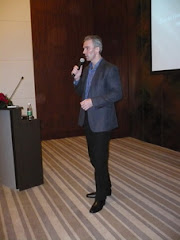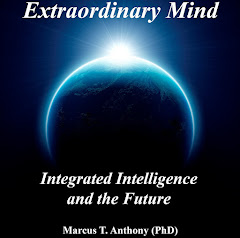I’ve just read an intriguing article on skeptiko.com, where Alex Tsakiris: is interviewing radical biologist Rupert Sheldrake.
It really is worth reading if you are interested in the philosophy of science and consciousness, or just wondering why so many of the wonderful emotional and spiritual things we human beings experience every day have been rejected in contemporary science and education. The entire interview leads to a discussion about a possible end to science. As we now understand it. Could this be true?
The interview is essentially about Sheldrake’s encounter with skeptic Richard Wiseman. According to Sheldrake, Wiseman has deliberately lied about an experiment they mutually conducted. Wiseman attempted to replicate an experiment of Sheldrake’s, which attempted to affirm whether a dog could possibly know that its owner was returning home, without having sensory cues to work with. This involved a dog called J.T., which was allegedly able to know that its master was coming home an inordinately high percentage of the time. The experimenters simply got the owner to return home at random times, and then observed whether the dog went to the window before the owner arrived. They eliminated obvious sensory indicators, such as recognition of car engine noise (the owner arrived by various means). Sheldrake’s prior research had come up with a figure which indicated that the dog went to the window 85% of the time when its owner was arriving. Wiseman’s replication experiment showed 78% of the time, with the dog being at the window about 4% of random times that the owner was not coming. You don’t need to know much about statistics to know that this is an amazingly significant correlation.
Incredibly, Wiseman then went and did interviews, wrote scientific articles and even a book stating that he had refuted Sheldrake’s research!
The remainder of Tsakiris’ interview with Sheldrake is a discussion about why so much of hardcore skeptical research and thinking, and a great deal of mainstream scientiifc thinking features attitudes and behaviours like that exhibited by Wiseman. Why is it that even when convincing evidence is brought forward that consciousness transcends the brain and that ESP, telepathy, life after death and so on are genuine, there is an immediate denial amongst so many?
I have discussed this issue many times here on this blog and in my other writings, so I won’t elaborate upon it too much. However I’d just like to quote Sheldrake here on the idea that science as it currently exists has reached its limits. The insistence that the cosmos is essentially a giant machine, that human beings are robotic automatons, and that consciousness is an accidental bi-product of random evolutionary forces has done its day.
Below, I will present a few of Sheldrake’s ideas, and then add an insight or two of my own. For those who are not familiar with my position, I am not a scientist. Firstly, I come at this problem as a researcher with a PhD in Policy Studies which addressed these issues. But secondly - and most importantly in my opinion - my understanding of these things comes from direct mystical and spiritual experience. I have spent twenty years exploring the mind at a first person level, including working with gifted mystics and teachers.
Here’s what Rupert Sheldrake has to say. In the following paragraphs he is addressing some of the shortcomings of mainstream science projects.
And consciousness studies show that the materialists’ attempts to understand the brain, which people 15 to 20 years ago thought we’d soon figure out by means of brain scans, etc., that consciousness itself is an impenetrable mystery from the materialist point of view. And consciousness studies is now really getting going. It’s an exciting field of science. It simply doesn’t fit the materialist model. Neither does the Genome Project and reductionistic molecular biology. It’s just running into problems over and over again. It’s simply not delivering.
So I think science is stuck. Although newspapers constantly tell us of new breakthroughs, that’s not what’s really happening. In medicine, too, there’s a dearth of new drugs that are coming out of drug companies that are really more expensive versions of existing ones. There’s very little that’s really new coming out. I think that this kind of science we’ve got at the moment, this materialistically reductionist kind of science, is running into the ground.
Here Sheldrake has hit upon an interesting feature of modern media and journalism. There is very little acknowledgement here that this crisis in science and society is upon us. Daily newspapers regularly report breakthroughs in genetic research and medicine as if it is business as usual. There is an implicit promissory stance: all the problems will be solved using reductionist and genetic approaches, and it is just a matter of time till all is revealed. Popular science magazines are no better. There is not enough questioning of the limits of what is happening. The result is that the crisis is staring us in the face, but we barely know it is there.
Make no mistake. This is not just bickering about some minor detail of a research project. It is a problem which drives straight to the very foundations of modern science.
Sheldrake goes on…
And it is in physics, too. We’ve got superstring theory with 10 dimensions or M-theory with 11 that are untestable. We’ve got cosmologists adopting a multiverse theory, postulating trillions of unobserved universes for which there’s not a shred of evidence. Over and over again, science is no longer confidently going forward with discovery after discovery. It’s reaching a kind of dead end; it’s in a kind of cul-de-sac.
Many years ago Australian social scientist Gillian Ross wrote something about this in her book The Search for the Pearl. It is not uncommon to see outrageous speculative “scientific” claims posited side by side with denunciations of spiritual and mystical phenomena which are genuine, and - in my experience - not difficult to confirm at a personal level. This boils down to more than paradigm blindness. It is hypocrisy.
Finally, Sheldrake goes on to make a crucial point…
I think that, together with the rising health care cost crisis and economic crisis and stuff is going to lead a major, major shift in world view. I always have been an optimist. It may seem like extreme optimism to think that at the moment, but I think it’s closer than it ever has been. I think we’re going to see a really big change quite soon.
I am in agreement with Sheldrake that the current economic and political crises around the world will offer us an enormous opportunity for growth and change. One of my spiritual teachers – a spiritual genius if ever there was one - whom I refer to as Jessica in my book Discover Your Soul Template – used to deliberately try to “stir up the dust” during our gatherings. Her take on the spiritual evolution of humanity was that when people are comfortable, they don’t ask questions and they don’t grow.
The frog slowly boiling in a pot of heated water comes to mind.
As an intuitive, it is my sense that there is a period of “disturbance” coming up, so I suggest you prepare yourself for it. Just how uncomfortable it will be, I am not sure. Yet instead of thinking of this as a negative experience, think of it as a chance for all of us to grow. The escalation of the financial crisis will most likely be exacerbated by economic and political unrest in China, which is just a matter of time now.
My perspective is that economic and cultural materialism has helped establish the domination of technoscience – scientiifc materialism. Technoscience is dominated by big business and driven by the greed and desire for power and control of the human ego. This has led to the creation of “money and machines” societies worldwide - societies where the central foci are financial success and titillation via technology. The entire system is a projection of the alienated mind – consciousness which exists in a state of dissociation from Spirit. Technoscience is a kind of distortion of science, just as money and machines societies are an extension of the ego.
Technoscience is not the only kind of science which can exist. There is another kind of science which involves a passionate inquiry into the nature of things, driven by the joy of discovery and a genuine desire to make a better world. This includes enhancing our relationship with nature and the spiritual thread which runs through all life.
No, science is not dead. But technoscience is breathing its last breath. The end may be difficult. Hold your hats.
It really is worth reading if you are interested in the philosophy of science and consciousness, or just wondering why so many of the wonderful emotional and spiritual things we human beings experience every day have been rejected in contemporary science and education. The entire interview leads to a discussion about a possible end to science. As we now understand it. Could this be true?
The interview is essentially about Sheldrake’s encounter with skeptic Richard Wiseman. According to Sheldrake, Wiseman has deliberately lied about an experiment they mutually conducted. Wiseman attempted to replicate an experiment of Sheldrake’s, which attempted to affirm whether a dog could possibly know that its owner was returning home, without having sensory cues to work with. This involved a dog called J.T., which was allegedly able to know that its master was coming home an inordinately high percentage of the time. The experimenters simply got the owner to return home at random times, and then observed whether the dog went to the window before the owner arrived. They eliminated obvious sensory indicators, such as recognition of car engine noise (the owner arrived by various means). Sheldrake’s prior research had come up with a figure which indicated that the dog went to the window 85% of the time when its owner was arriving. Wiseman’s replication experiment showed 78% of the time, with the dog being at the window about 4% of random times that the owner was not coming. You don’t need to know much about statistics to know that this is an amazingly significant correlation.
Incredibly, Wiseman then went and did interviews, wrote scientific articles and even a book stating that he had refuted Sheldrake’s research!
The remainder of Tsakiris’ interview with Sheldrake is a discussion about why so much of hardcore skeptical research and thinking, and a great deal of mainstream scientiifc thinking features attitudes and behaviours like that exhibited by Wiseman. Why is it that even when convincing evidence is brought forward that consciousness transcends the brain and that ESP, telepathy, life after death and so on are genuine, there is an immediate denial amongst so many?
I have discussed this issue many times here on this blog and in my other writings, so I won’t elaborate upon it too much. However I’d just like to quote Sheldrake here on the idea that science as it currently exists has reached its limits. The insistence that the cosmos is essentially a giant machine, that human beings are robotic automatons, and that consciousness is an accidental bi-product of random evolutionary forces has done its day.
Below, I will present a few of Sheldrake’s ideas, and then add an insight or two of my own. For those who are not familiar with my position, I am not a scientist. Firstly, I come at this problem as a researcher with a PhD in Policy Studies which addressed these issues. But secondly - and most importantly in my opinion - my understanding of these things comes from direct mystical and spiritual experience. I have spent twenty years exploring the mind at a first person level, including working with gifted mystics and teachers.
Here’s what Rupert Sheldrake has to say. In the following paragraphs he is addressing some of the shortcomings of mainstream science projects.
And consciousness studies show that the materialists’ attempts to understand the brain, which people 15 to 20 years ago thought we’d soon figure out by means of brain scans, etc., that consciousness itself is an impenetrable mystery from the materialist point of view. And consciousness studies is now really getting going. It’s an exciting field of science. It simply doesn’t fit the materialist model. Neither does the Genome Project and reductionistic molecular biology. It’s just running into problems over and over again. It’s simply not delivering.
So I think science is stuck. Although newspapers constantly tell us of new breakthroughs, that’s not what’s really happening. In medicine, too, there’s a dearth of new drugs that are coming out of drug companies that are really more expensive versions of existing ones. There’s very little that’s really new coming out. I think that this kind of science we’ve got at the moment, this materialistically reductionist kind of science, is running into the ground.
Here Sheldrake has hit upon an interesting feature of modern media and journalism. There is very little acknowledgement here that this crisis in science and society is upon us. Daily newspapers regularly report breakthroughs in genetic research and medicine as if it is business as usual. There is an implicit promissory stance: all the problems will be solved using reductionist and genetic approaches, and it is just a matter of time till all is revealed. Popular science magazines are no better. There is not enough questioning of the limits of what is happening. The result is that the crisis is staring us in the face, but we barely know it is there.
Make no mistake. This is not just bickering about some minor detail of a research project. It is a problem which drives straight to the very foundations of modern science.
Sheldrake goes on…
And it is in physics, too. We’ve got superstring theory with 10 dimensions or M-theory with 11 that are untestable. We’ve got cosmologists adopting a multiverse theory, postulating trillions of unobserved universes for which there’s not a shred of evidence. Over and over again, science is no longer confidently going forward with discovery after discovery. It’s reaching a kind of dead end; it’s in a kind of cul-de-sac.
Many years ago Australian social scientist Gillian Ross wrote something about this in her book The Search for the Pearl. It is not uncommon to see outrageous speculative “scientific” claims posited side by side with denunciations of spiritual and mystical phenomena which are genuine, and - in my experience - not difficult to confirm at a personal level. This boils down to more than paradigm blindness. It is hypocrisy.
Finally, Sheldrake goes on to make a crucial point…
I think that, together with the rising health care cost crisis and economic crisis and stuff is going to lead a major, major shift in world view. I always have been an optimist. It may seem like extreme optimism to think that at the moment, but I think it’s closer than it ever has been. I think we’re going to see a really big change quite soon.
I am in agreement with Sheldrake that the current economic and political crises around the world will offer us an enormous opportunity for growth and change. One of my spiritual teachers – a spiritual genius if ever there was one - whom I refer to as Jessica in my book Discover Your Soul Template – used to deliberately try to “stir up the dust” during our gatherings. Her take on the spiritual evolution of humanity was that when people are comfortable, they don’t ask questions and they don’t grow.
The frog slowly boiling in a pot of heated water comes to mind.
As an intuitive, it is my sense that there is a period of “disturbance” coming up, so I suggest you prepare yourself for it. Just how uncomfortable it will be, I am not sure. Yet instead of thinking of this as a negative experience, think of it as a chance for all of us to grow. The escalation of the financial crisis will most likely be exacerbated by economic and political unrest in China, which is just a matter of time now.
My perspective is that economic and cultural materialism has helped establish the domination of technoscience – scientiifc materialism. Technoscience is dominated by big business and driven by the greed and desire for power and control of the human ego. This has led to the creation of “money and machines” societies worldwide - societies where the central foci are financial success and titillation via technology. The entire system is a projection of the alienated mind – consciousness which exists in a state of dissociation from Spirit. Technoscience is a kind of distortion of science, just as money and machines societies are an extension of the ego.
Technoscience is not the only kind of science which can exist. There is another kind of science which involves a passionate inquiry into the nature of things, driven by the joy of discovery and a genuine desire to make a better world. This includes enhancing our relationship with nature and the spiritual thread which runs through all life.
No, science is not dead. But technoscience is breathing its last breath. The end may be difficult. Hold your hats.













In the words of Stein's law (he was an economist and adviser to Richard Nixon) "If something cannot go on forever, it will stop". This applies to any number of phenomena in today's world: the destruction and abuse of the planet's resources, Chinese economic growth coupled with political repression, and the overarching dominance of the techno-scientific ego-driven model.
ReplyDeleteBut of course, as you say, turbulence follows the abandonment of any addiction, however destructive. We need to stick together, though, not just buy gold, stockpile weapons and get ready to head for the hills ...
Great readiing
ReplyDelete